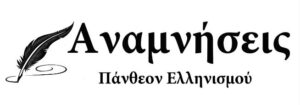Bank on This
Posted by estiator at 11 October, at 15 : 00 PM Print
MANAGING FOR SUCCESS By CONSTANTINE N. KOLITSAS Business Coach
In this month’s column I’m going to take a detour to relay an experience I had outside the restaurant but has some obvious connections to business and serves as a cautionary tale.
I was on my way to work the other morning when I received an email from Bank of America. I’m not going to disguise the name of the institution, not because I want them to lose business, but because it’s important to understand that I’m dealing with one of the world’s largest banks, and not with some small local savings and loan.
Usually I just skim past those emails as 99 percent of the time they’re just trying to market something to me. But this time the subject caught my eye, and I opened it to read that there was less than $100 in my checking account. This made no sense—
I had just put in a large sum as I was getting ready for a tuition payment for my daughter’s fall semester of college. I had just checked my balance the previous day, and since then, there were four strange transactions. Three were deposits, all under one dollar, from an account I did not recognize, and one was a withdrawal for $17,200, also from a strange account. But the funds were not fully withdrawn at this point. Beside the transaction was the word “pending.”
Needless to say, I hightailed it to my BofA branch.
“I think I’ve been hacked,” I tell the branch manager.
I quickly explain the situation, hoping she will pick up the phone with great urgency, yell, “STOP THE TRANSACTION!!!” to someone on the other end, and the money will be safe and sound, nestled there cozily in my account. Instead, she is talking slowly, explaining in excruciating detail how this happens every day, right here in her own branch, and that every bank is seeing the same thing, and that just yesterday a woman… “That’s all horrible, but can you please get on the phone and stop this transaction before the status changes from ‘pending’ to ‘complete’?” I implore her.
“But it doesn’t work that way,” she tells me. “Even if we could stop it, which we can’t. The crooks would only have to change the amount, and it will still go out because they have your routing number and account number,” she tells me. Slowly.
First of all, every check written has the routing number and account number on it, so it’s not like we’re talking about top secret information. But I’m still pushing to get the trans- action stopped.
“We can’t stop an ACH transaction,” she tells me. “You’ll have to come back tomorrow after the money is gone and file a fraud report. And then it can take up to 45 days to get your money back.”
The back-and-forth goes on for a good 20 minutes, and there’s a phone call with the fraud department that takes place. “Call us tomorrow after the money’s gone,” I’m told by the woman on the phone.
Perplexed, I leave to go and run the lunch shift at the restaurant. Afterward, I go to the regional bank nearby to do some banking for the business and I relay to the branch manager there about my experience. “That’s BS,” she says, and confirms that, indeed, ACH withdrawals could be stopped before they are completed.
Again, I hightail it back to my BofA branch, and now I’m pissed off.
“How is it that a small regional bank can stop a pending ACH transaction, but one of the world’s biggest banks can’t?” I ask.
“Can they? I don’t think so,” the BofA manager replies. How about we just go ahead and try, I tell her, adding that I understand she sees this all the time but if it were HER money being taken, I was sure she would do everything possible to stop it.
Two more phone calls later, and lo and behold, I’m told that it might be possible to stop the payment, but that it might not work, in which case I would have to file a fraud report after the fact.
Fine. Might not work also means that it might work. I’ll take it.
But they can just try to do another transaction and then the money will still be gone, I’m told.
“How about we freeze the account, which means that money can go in, but can’t go out; can we do that?” I ask.
Yes, I’m told, but why would I want to do it? Let’s just do it, I tell them. It’s my money and my account, and this is what I am specifically directing you to do.
Okay, and don’t forget to come back tomorrow to file the fraud report (because they are convinced the money will be gone).
The next morning I opened my banking app and there it was. All my money.
There are lots of lessons to be learned here, and I’m not going to spell them out because, unless you’re a Bank of America employee, you probably understand them without further explanation.
P.S.: After relaying my experience to my FB friends, many reached out with tips about how to protect your identity. Eerily, dozens of people in my friends list have had similar experiences. The best tip, and one that I want to share, is to create a user name that looks like one of those incomprehensible passwords. This makes it nearly impossible for bad guys to hack.
Constantine Kolitsas is the president of CNK Consulting, a restaurant consultant and coaching business. He can be reached at 203-947-6234 or at ckolitsas@gmail.com.
















